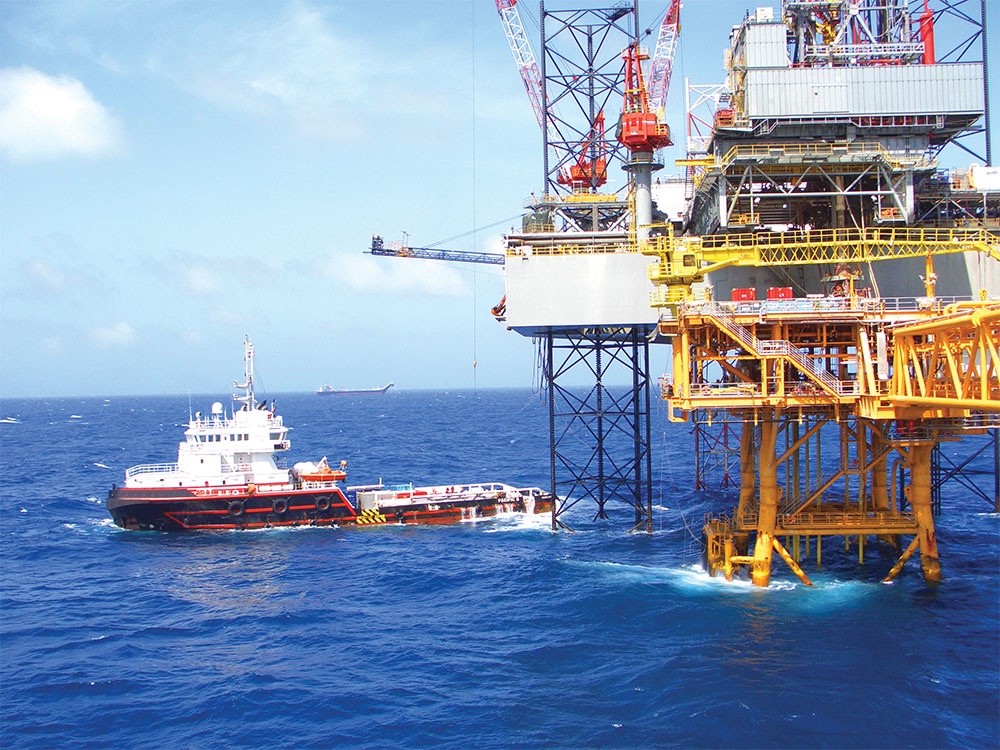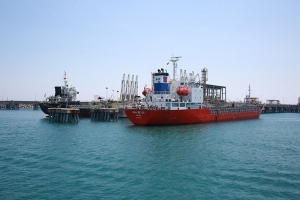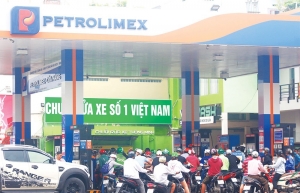Amendments to Law on Petroleum can go some way to help attract funds
The currently amended Law on Petroleum is one of the bills considered by the National Assembly (NA) at its fourth session, which opened on October 20. Phan Duc Hieu, standing member of the National Assembly Economic Committee – the agency in charge of verifying the revised law – said that compared with the original draft, the incentive mechanism has been supplemented, and it was possible to compete in attracting investment.
 |
| Amendments to Law on Petroleum can go some way to help attract funds, photo Le Toan |
“The draft of the amended law has had many institutional reforms, considering risk-sharing mechanisms, especially at the exploration stage. This can be more effective than incentives measured in numbers,” Hieu said.
Nevertheless, the latest draft also stipulates figure-based preferential policies applicable to oil and gas blocks and fields implemented through oil and gas contracts. These contracts are entitled to investment incentives such as a corporate income tax rate of 32 per cent, and a crude oil export tax rate of 10 per cent, among others.
Another point in the current draft that has received much attention from regulators, experts, and businesses is that the language used in oil and gas contracts is still Vietnamese. Although it was explained by Clause 2 of the law that Vietnam is willing to use two languages when signing contracts with foreign partners, experts, lawyers, and businesses still believe that the provisions regarding the language are not appropriate.
Nguyen Minh, head of the Legal and Commercial Department at Eni Vietnam, told local media that foreign investors want to have two languages when signing contracts. “Foreign investors are afraid to enter a petroleum contract that used only the Vietnamese language before, and was later translated into English,” Minh said.
Globally, it has become practice to use two languages in such contracts, allowing foreign investors to easily engage in a deal. On the contrary, if there is no English in the first place, it could present a new barrier in attracting foreign investment into the industry.
When it comes to other investment incentives, many analysts believe that it is necessary to focus on avoiding legal conflicts. However, to ensure the rights and obligations, there should be more regulations on transitioning investment incentives, argue some. This means that ongoing projects will enjoy incentives according to provisions of the new law if they are higher.
If incentives are lower than the amended law, the projects would continue to be applied according to the old regulations. In addition, when the policy changes, investors have the right to choose and apply new and more preferential policies. These recommendations, according to domestic analysts, are based on the provisions of the country’s Law on Investment.
One example of an oil project that struggles with the current legal basis is PetroVietnam Exploration Production Corporation (PVEP), which has only signed two contracts in the Mekong Delta basin in the last five years, as Le Dac Hoa, PVEP’s Block 01-02 project manager, said at a seminar in September.
“The lack of a clear legal basis for Block 01-02 after the expiration of the oil and gas contract significantly affects technical, legal, and economic aspects of the operation,” Hoa said.
The contract for Block 01-02, operated by Petronas Carigali Vietnam Ltd., expired in 2017. As the representative, PetroVietnam received oil and gas assets and operations after the contract’s expiration. Then, PetroVietnam and PVEP signed a temporary lease agreement to operate oil and gas operations at Block 01-02, and PVEP has taken control of these activities since 2017.
“PVEP is not an oil and gas investor or contractor, and thus unable to carry out such activities. So, the current oil and gas activities only stop at maintaining safe exploitation at existing fields without big investments. Moreover, the operating lease contract of Block 01-02 is renewed annually while the contracts for maintenance, operation, and exploitation are only signed for the short term,” Hoa said.
He worries that there will be many such issues with oil and gas contracts in the coming years. “Contracts might expire and be refunded to the host country with the remaining oil and gas reserves and small output, as well as low economic efficiency,” Hoa added.
The Law on Petroleum was promulgated by the NA in 1993 and has undergone three amendments and supplements. One of the goals set when amending the law this time is to contribute to improving the attractiveness of the investment environment in the oil and gas sector, particularly in major policy groups submitted to the NA.
However, to create a complete and feasible legal framework and increase the attractiveness of the investment environment, it could be necessary to clarify several provisions in the draft of the amended law.
Currently, the draft law does not contain regulations allowing previously implemented projects to enjoy incentives under the revised Law on Petroleum, but oil and gas activities have seen significant changes. Meanwhile, many oil and gas contracts were signed more than 20 years ago, some even before the current Law on Petroleum took effect.
| - Vietnam was one of the first countries to submit an update of its Nationally Determined Contribution to the UN Framework Convention on Climate Change in 2020. By 2030, total emissions under the business-as-usual scenario would amount to 928 million tonnes of carbon dioxide equivalent (CO2-eq), in which the energy sector accounts for 678 million tonnes. Under the internationally supported scenario, emissions would amount to 677.2 million tonnes of CO2-eq, with energy making up 523 million tonnes. - The Ministry of Industry and Trade expects that, by 2045, coal power capacity will decrease by 23,400MW, liquefied natural gas power capacity will reduce by about 24,350MW, solar power will increase by 33,000MW, onshore wind power will rose by about 23,000MW, and offshore wind power will climb by 28,500MW. - CO2 emissions will peak in around 2031-2035 at 231 million tonnes, then decrease gradually. By 2045, CO2 emissions are reduced to about 175 million tonnes, which means about 208 million tonnes of CO2 reduction compared to pre-COP26 alternatives. By 2050, it is estimated that CO2 emissions from the power generation sector will be about 40 million tonnes per year, contributing to meeting Vietnam’s commitment. |
 | Dung Quat Refinery exceeds design capacity to meet demand Binh Son Refining and Petrochemical JSC (BSR) is operating Dung Quat Oil Refinery at 109 per cent of the refinery’s design capacity to offset the lack of petroleum and oil in the market. |
 | Situation still acute in efforts to manage petrol supply The National Assembly Economic Committee last week asked the government to come up with timely responses to the petroleum supply issue, as fluctuations in the domestic market during the last month showed that problems in reserves and supply have not been completely resolved. |
What the stars mean:
★ Poor ★ ★ Promising ★★★ Good ★★★★ Very good ★★★★★ Exceptional
Related Contents
Latest News
More News
- Vingroup consults on carbon credits for electric vehicle charging network (January 28, 2026 | 11:04)
- Bac Ai Pumped Storage Hydropower Plant to enter peak construction phase (January 27, 2026 | 08:00)
- ASEAN could scale up sustainable aviation fuel by 2050 (January 24, 2026 | 10:19)
- 64,000 hectares of sea allocated for offshore wind surveys (January 22, 2026 | 20:23)
- EVN secures financing for Quang Trach II LNG power plant (January 17, 2026 | 15:55)
- PC1 teams up with DENZAI on regional wind projects (January 16, 2026 | 21:18)
- Innovation and ESG practices drive green transition in the digital era (January 16, 2026 | 16:51)
- Bac Ai hydropower works stay on track despite holiday period (January 16, 2026 | 16:19)
- Fugro extends MoU with PTSC G&S to support offshore wind growth (January 14, 2026 | 15:59)
- Pacifico Energy starts commercial operations at Sunpro Wind Farm in Mekong Delta (January 12, 2026 | 14:01)

 Tag:
Tag:




















 Mobile Version
Mobile Version